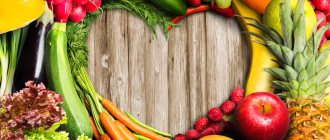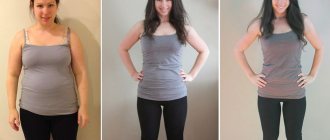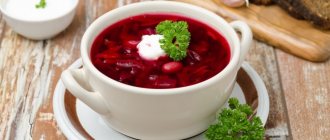Calorie intake is an indicator of the amount of daily food consumption necessary to ensure the functioning of the body, perform all necessary biochemical and physiological processes, maintain body temperature, function of various systems and organs, as well as to conduct various human activities.
The caloric intake required to maintain all of the above processes in the body directly depends on the body weight, height, age and gender of the person. For example, for women its indicator is 15% lower than for men, however, during pregnancy, the caloric intake of women should increase by 15-25% of the usual norm.
The physiological energy requirement for adults ranges from 2000 kcal to 4100 kcal per day for men, and from 1700 kcal to 3000 kcal per day for women. For children under one year of age, the physiological need for energy is 100-115 kcal per 1 kg of body weight per day, and for children aged from one year to 18 years - from 1100 kcal to 2800 kcal per day, with an increase in calorie intake during adolescence.
Also, a person’s calorie intake can be affected by a change of place of residence, which is accompanied by a change in climate, for example, from subtropical to moderately cold, which will naturally increase the body’s energy expenditure to adapt to such a cold climate, and the amount of calories consumed will have to increase by about 15% .
A little history
The history of calorie counting for weight loss dates back to 1918, when American physician Lulu Hunt Peters published the best-selling brochure “Diet and Health with the Key to Counting Calories.” She was the first to wonder how many calories she needed to eat to lose weight. As an example of weight loss, the brochure cited the option of women losing weight with a “parity” calorie content (as in forum jargon the calorie content of weight retention is usually called) 2400 kcal (this figure is close to the recommended caloric intake by Rospotrebnadzor for a woman with low physical activity) on a halved diet of 1200 kcal.
Delicious recipe! Thai rum hong thong
For 100 years, no new trends have appeared in popular dietetics - losing weight with calorie counting means exclusively consuming 1200 kcal. Moreover, it is widely announced (without reference to reliable sources) that the level of basal metabolic rate (BMR) of a person is unchanged when the caloric content of the diet is 1200 kcal and above, thereby this caloric content is considered completely safe and recommended for weight loss.
Incorrect distribution
Why is it so important to distribute calories correctly throughout the day? Skipping breakfast does not allow the metabolism to start, food is digested less well, and a person may feel unwell throughout the day. Also, skipping breakfast leads to overeating at other times, especially in the evening.
And even if a person has not eaten all day, but ate 800 calories of healthy foods for dinner, he will not be able to lose weight, since at night the body will begin to store all the excess in fat deposits.
So the approximate calculation is:
- breakfast 30%;
- snack 10%;
- lunch 30%;
- snack 10%;
- dinner 20%.
It is important to understand that the distribution may vary slightly. Sometimes you can eat a little less food at lunch or dinner, but make up for it during snacks. Percentage figures are not mandatory, they are advisory in nature. It is important to eat often, since in such a rhythm a person’s stomach works constantly, which means weight will decrease.
Lunch calories
Lunch is the second most important meal for the body after breakfast. It is very important that he is full and not hungry, otherwise there is a chance he will break down and overeat during dinner. The calorie content of lunch should be 35-40% of the daily calorie intake and range from 500 to 800 kcal.
Healthy foods for the menu with a calorie content not exceeding 800 kcal per serving are meat, fish, vegetables, fruits, fermented milk products, a variety of soups and broths, mushrooms and legumes. Also during lunch, you can eat a little dessert prepared yourself - this is the only way to be sure that it will consist of healthy and fresh ingredients, and not from saturated trans fats and light carbohydrates, the consumption of which leads to the accumulation of fat and excess weight in the body . A properly prepared dessert will not have a negative impact on the calorie content of lunch; the main thing is not to overdo it with portions. Recipes for delicious and healthy desserts are:
- Recipe 1 – kefir pancakes with apples. To prepare one serving of pancakes, allowing you to maintain a low level of caloric intake, you need to beat one egg, 50 g of sugar and 150 g of 0% kefir with a mixer. Then add half a cup of whole grain flour and a quarter tsp to the resulting mixture. soda and beat again with a mixer. One large apple must be peeled, cored and pitted, cut into small slices and placed in the finished dough. It is advisable to cook pancakes in a ceramic frying pan without oil. The finished pancakes can be sprinkled with cinnamon and a small amount of powdered sugar or sprinkled with a few tablespoons of any syrup or jam;
- Recipe 2 – ginger charlotte. To prepare charlotte, which allows you to maintain a low level of caloric intake and is designed for 4 servings, you need to beat the whites of 4 eggs with 150 g of sugar, and with another 150 g of sugar you need to beat the yolks of 4 eggs, and then combine them together. Then, 1 cup of whole grain flour, half a tsp are gradually added to the resulting mixture. baking soda, a glass of warm water and a pinch of salt. Fresh ginger root (100-150 g, more is possible, but then the charlotte will be quite “savory”) should be grated on a fine grater, added to the dough and mixed thoroughly. The charlotte should be baked in a mold, greased with butter and sprinkled with semolina, for half an hour or 40 minutes at a temperature of 180°C;
- Recipe 3 – panna cotta with berries. To prepare a delicious berry panna cotta, which allows you to maintain a low level of caloric intake, you need to mix one pack of gelatin with 150 ml of cool water and bring it to full readiness (until it swells). Then mix 200 ml of 15% homemade cream with 100 g of sugar and 100 ml of cool water, put on fire and cook for 15 minutes, stirring continuously and without bringing to a boil. Afterwards, you need to add ready-made gelatin to the prepared hot mixture, mix thoroughly, pour into molds and cool overnight in the refrigerator. Beat 200 g of fresh berries (strawberries, raspberries and blueberries) with a blender and mix with 30 g of powdered sugar, after which the finished berry sauce is poured over the finished panna cotta.
The calorie content of a lunch with such desserts will not increase much, and eating such delicious dishes has a beneficial effect on a person’s health and mood.
Accurate calorie calculation using imprecise formulas
A special category of people losing weight has appeared - the so-called. “calorie eaters” who keep to themselves on forums and assume that they know how many calories to eat per day to lose weight. Recently, calorie counting has become easier thanks to the availability of online planners and mobile applications. These calculator programs allow you to calculate the number of calories consumed per day from food. The situation is somewhat worse, or rather, quite bad, when calculating how much you need to eat. The basis of the calculation is the Harris-Benedict basal metabolic formula, also published in 1918, and “hardwired” into almost all online calculators. 66 years later, in 1984, it was shown that the accuracy of this formula was ±14%. At the same time, the individual deviations of the UO of people with endocrine diseases, where the problem of obesity is very urgent, from that prescribed by the formula are even higher.
To determine the total energy expenditure, the EVO is multiplied by a coefficient dependent on physical activity, set by Rospotrebnadzor according to the person’s profession. This gives an additional error of 15%; As a result, with a general error in calculating energy expenditure of 25-30% and a reduction in caloric intake required for weight loss of 20-25% of the “parity”, the calculation loses its meaning - an attempt to lose weight at the calculated caloric intake will lead to either no weight loss or too rapid weight loss.
Options
If you need sports (men's) or the lowest calorie breakfasts, we offer the following options.
Low calorie:
- eggs with herbs;
- scrambled egg quesadilla;
- swirl with ricotta;
- tofu with mushrooms;
- oatmeal with berries;
- rice pudding with pistachios;
- carrot cutlets.
Sports:
- protein salad of squid, chicken breast and egg white;
- egg white omelet;
- boiled eggs;
- porcini mushroom salad;
- milkshake;
- shrimp with lemon juice;
- whole grain bread with a piece of boiled chicken breast;
- oatmeal or buckwheat with milk.
An athlete's breakfast must be protein-rich and dense. During hard training, you need to drink whey proteins or gainers in the morning. The ratio of carbohydrates to proteins depends on your body type. For ectomorphs it should be approximately the same. For mesomorphs, breakfasts consisting of 65% proteins and 35% carbohydrates are recommended. Endomorphs need to reduce the amount of carbohydrate foods to 25%, but at the same time eat more protein.
It is not necessarily addressed only to men. If girls want not only to get rid of extra pounds, but also to gain the most beautiful figure amid intense training, they can use these options.
Even the most delicious breakfasts, if they are repeated, will soon become boring and can jeopardize any diet. To prevent this from happening, you need variety in the products and dishes that you prepare for yourself in the morning. An indicative version will help in creating a menu for each day.
This menu is an example, that is, you can change something in it at your discretion. The main thing is to adhere to the principles of healthy eating.
Recommendations
Some more useful tips on how to organize a healthy breakfast with proper nutrition so that it contributes to weight loss.
- The ideal time is in the morning from 07.00 to 09.00, half an hour after waking up.
- Half an hour before meals you need to drink a glass of water.
- You should always have breakfast at the same time.
- If you don’t have an appetite in the morning, find ways to awaken it: buy bright dishes, eat the most delicious foods, spend this time with your loved ones.
- If you don’t have time to prepare delicious and complex dishes, do it the night before so you can simply reheat it in the morning.
- Frying or grilling is not the best way to cook. All the others are quite suitable.
- No need to swallow the porridge, burning your mouth. This is harmful to the gastric mucosa. The temperature of the food should be comfortable.
- You can’t rush and sit on gadgets - the process of eating should give you a feeling of pleasure and complete satisfaction.
- Don't overeat - you need to leave the table with a slight feeling of hunger.
- Before meals, it will be useful to do morning exercises.
If you follow these simple recommendations from nutritionists, breakfast will become an integral part of your weight loss program and will allow you to achieve excellent results much earlier.
What are the benefits of breakfast?
People who skip their morning meals are more likely to suffer from cardiovascular diseases. Their digestion is disrupted and cholesterol increases. As a result, hypertension and other unpleasant diseases may occur:
- Eating food in the morning starts the digestive mechanisms and gives energy to the body to carry out any activities. If you skip breakfast, your metabolism will be lower and, as a result, you will quickly gain excess weight. Healthy food, on the contrary, promotes weight loss, especially in combination with exercise. Even light exercise has a beneficial effect on the body;
- A healthy breakfast and proper nutrition helps the internal organs cleanse themselves of toxins. The skin is especially sensitive. Having gotten rid of junk food, it will immediately react and become cleaner and lighter. In addition, a properly prepared healthy breakfast will help get rid of stomach and intestinal problems;
- The body always experiences stress if a meal is missed. This is especially true for breakfast. If someone practices water fasting, then this stress is beneficial. Although you shouldn't abuse it. Regular breakfast helps rejuvenate the body;
- general condition and mood will improve as soon as a person begins to eat tasty and healthy food.
It happens that in the morning you don’t feel like eating at all. The body has not yet fully woken up and the piece does not fit into the throat at all. What to do in this case? Before going to the bath, you need to drink a glass of filtered water at room temperature in small sips. Afterwards, you can do your morning hygiene, watch TV, and then start breakfast. If there is no time left, then you can take it to work or school. But under no circumstances should you miss it.
In addition, breakfast should be quite varied. To avoid getting bored with food, you should try different options. Plus, the morning meal will become more desirable. You should also try to drink less coffee. If you really can’t live without it, then you should definitely make yourself a sandwich or something similar to go with it.
An example of calculation and method for losing weight by 400 g per week
Nurse, weight 70 kg (normal weight 55 kg), walks to and from work 5 days a week (2 km), strength training 2 days a week in the fitness center (1 hour).
Energy expenditure during low physical activity: 30 x 55 + 9 x 15 = 1785 (kcal). Additional energy expenditure taking into account physical activity: 1785 + 300 = 2085 (kcal). Weekly energy expenditure for walking: 5 x 2 x 0.5 x 70 = 350 (kcal).
Weekly energy expenditure for strength training: 2 x 1 x 200 = 400 (kcal). Average daily costs for walking and strength training: (350 + 400)/7 = 107 (kcal). Total daily energy expenditure: 2085 + 107 = 2192 (kcal). Calorie content for weight loss: 2192 – 400 = 1792 (kcal), rounded to 1800 kcal.
Based on the planned caloric deficit of 400 kcal, weight loss will proceed at a rate of 400 g per week. Losing weight to the intended target weight of 55 kg will last 15/0.4 = 38 (weeks). At the same time, due to decreasing weight, there will be a decrease in calorie intake.
There is no need for constant recalculation of caloric content, since caloric content must be adjusted according to actual plumb lines.
Control weighing should be carried out once every 4 weeks (for women on the 5th day of the cycle) to adjust caloric intake based on the results. In 4 weeks, the actual weight should be 4 x 0.4 = 1.6 (kg).
Calorie adjustment is carried out every 4 weeks after control weighing and is as follows: with a weight within 1.4-1.8 kg, the calorie content does not change, with a weight less than 1.4 kg or weight gain, the calorie content decreases by 100 kcal, with a weight of more than 1 .8 kg calorie content increases by 100 kcal.
The diet chosen is 4 meals a day, with second breakfast. Kefir for the night is 100 kcal, for 4 meals there is 1800 – 100 = 1700 (kcal). We calculate the calorie content of meals (for a total calorie content of 1700 kcal):
First breakfast: 0.25 x 1700 = 425 (kcal).
Second breakfast: 0.15 x 1700 = 255 (kcal).
Lunch: 0.35 x 1700 = 595 (kcal).
Dinner: 0.25 x 1700 = 425 (kcal).
Kefir at night: 100 kcal.
Total: 425 + 255 + 595 + 425 + 100 = 1800 (kcal).
Thus, we have established that for our example, a total of 680 kcal should be consumed for the first and second breakfast. Next, let's decide on suitable products.
Breakfast calories. Chemical composition and nutritional value.
Nutritional value and chemical composition of “breakfast”.
| Nutrient | Quantity | Norm** | % of the norm in 100 g | % of the norm in 100 kcal | 100% normal |
| Calorie content | 111 kcal | 1684 kcal | 6.6% | 5.9% | 1517 g |
| Squirrels | 5 g | 76 g | 6.6% | 5.9% | 1520 g |
| Fats | 2.5 g | 56 g | 4.5% | 4.1% | 2240 g |
| Carbohydrates | 17.2 g | 219 g | 7.9% | 7.1% | 1273 g |
| Vitamins | |||||
| Vitamin B1, thiamine | 0.2 mg | 1.5 mg | 13.3% | 12% | 750 g |
| Vitamin B6, pyridoxine | 0.22 mg | 2 mg | 11% | 9.9% | 909 g |
| Vitamin B12, cobalamin | 0.3 mcg | 3 mcg | 10% | 9% | 1000 g |
| Vitamin C, ascorbic acid | 9 mg | 90 mg | 10% | 9% | 1000 g |
| Vitamin E, alpha tocopherol, TE | 1.2 mg | 15 mg | 8% | 7.2% | 1250 g |
What should you eat?
Want to keep your stomach light after breakfast? Elena Chedia advises eating mostly carbohydrates. If you know that you won’t be able to eat for a long time after breakfast, the ideal option is protein dishes with a vegetable side dish
in a 1:3 ratio. A side dish is required because fiber ensures intestinal function. In addition, the side dish itself is large in volume, it fills the stomach and promotes a feeling of fullness. It is better to eat meat boiled or steamed - it is easier to digest. Such breakfasts are convenient because you can finish the food that is left over from dinner or lunch.
Calorie content of dinner
Dinner is an equally important meal of the day, along with lunch and breakfast; you should not skip it even for fear of gaining excess weight, because it affects the overall calorie intake of a person. It is important to remember that dinner should end 3-4 hours before bedtime, consist of light food, and the caloric content of food received during its intake should not exceed a quarter of the total calories consumed per day. On average, it varies from 250 to 500 kcal per meal. Ideal products for a menu with a calorie content not exceeding the above norm are stewed or baked vegetables, salads, boiled meat and fish, low-fat kefir and green tea with honey.
Taking into account all the above advice regarding calorie intake, breakfasts, lunches and dinners, it is important not to forget about snacks, ideal foods for which are nuts, fruits and dairy products, as well as drinking at least 1.5 liters of plain or mineral water per day.











